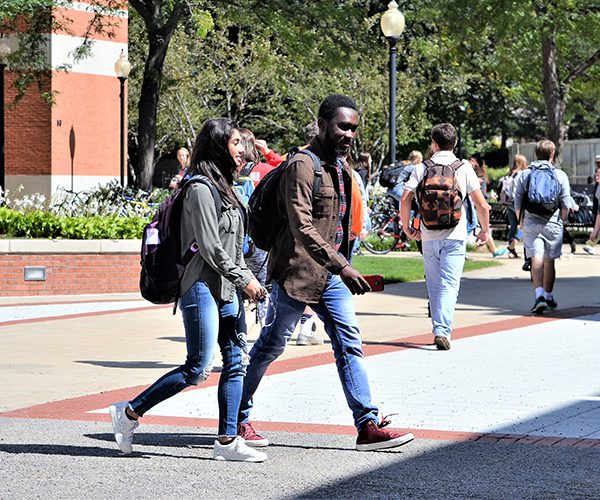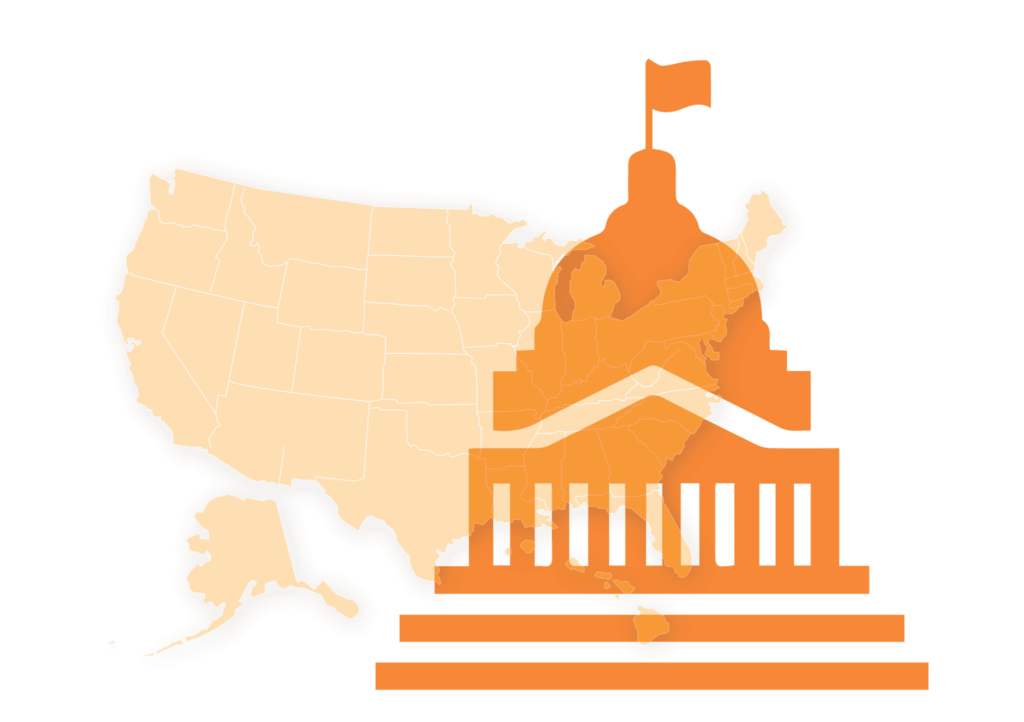CONTACT: Ameshia Cross
ACross@edtrust.org
312-339-6930
EdTrust Report Examines How Colleges’ Anti-DEI Policies Affect Campus Racial Climate
WASHINGTON – Amid the ban on affirmative action in college admissions and pressure from conservative extremists, some state and college leaders are doing away with their diversity, equity, and inclusion (DEI) programs. A new report from EdTrust contends that this is the wrongheaded direction: there needs to be greater efforts on college campuses to support the belonging and success of students of color — not fewer.
EdTrust’s digital report, “Creating Positive College Campus Racial Climates for Students of Color,” interviewed Black, Latino, and Asian American students at predominantly White institutions (PWIs) in 15 states to glean insight into their experiences on campus. These students expressed frustrations about the underrepresentation of students of color and faculty on campuses, compounded by the failures of administrators to recognize, report, and handle incidents of microaggressions, racism, or discrimination.
One Latino student said, “There’s been a lot of incidents in classes on campus where White teachers or non-students of color have created racial issues, and [my campus] has continued to really just to look over and continue on with their day.”
“Despite numerous pledges to address campus diversity from university leadership, many students of color continue to report feelings of isolation, have limited supports, and don’t trust campus leadership to appropriately resolve or address racial incidents,” said Jessie Hernandez -Reyes, EdTrust senior policy analyst and report author. “University leadership must act to address poor campus racial culture, as research consistently shows that students of color’s experiences on college campuses significantly affect their sense of belonging, perseverance, and graduation rates.”
Data shows that by 2045, the United States will no longer be a majority-White country. As such, EdTrust researchers stress that our nation’s colleges and universities should reflect America’s growing diversity. Admissions of Black, Latino, and Asian American students isn’t enough, the report notes. College leaders must meet underserved students’ needs by providing a supportive and inclusive environment where these students can thrive.
To achieve inclusive college environments, here is a sample of recommendations for colleges:
- Mandate campus racial climate metrics
- Explicitly inform students of existing social, academic, and economic supports
- Set goals and benchmarks for addressing diversity
- Mandate a student complaint process
“I am proud to support the EdTrust on the importance of DEI efforts in higher education. The report exposes the harsh realities that students of color face at predominately White institutions, where they often encounter discrimination, isolation, and hostility. The report also challenges the institutions to take concrete actions to improve their racial climate and foster a sense of belonging for all students,” said, Ivory Toldson, Ph.D., Director of Education Innovation at Research at the NAACP and professor at Howard University.
Positive campus racial climates will not be achieved haphazardly in this hyper-partisan environment where the gains of the Civil Rights Movement are being systematically rolled back. However, our nation’s colleges and universities cannot afford to lose students of color in enrollment or graduation and hope to retain our global competitiveness. Indeed, creating college environments where all students can succeed, starts by listening to students.
To learn more about this report and recommendations for federal and state policymakers, accrediting bodies, and attorney generals, please visit: https://edtrust.org/college-campus-racial-climates/
###
About EdTrust
EdTrust is committed to advancing policies and practices to dismantle the racial and economic barriers embedded in the American education system. Through our research and advocacy, EdTrust improves equity in education from preschool through college, engages diverse communities dedicated to education equity and justice, and increases political and public will to build an education system where students will thrive.





